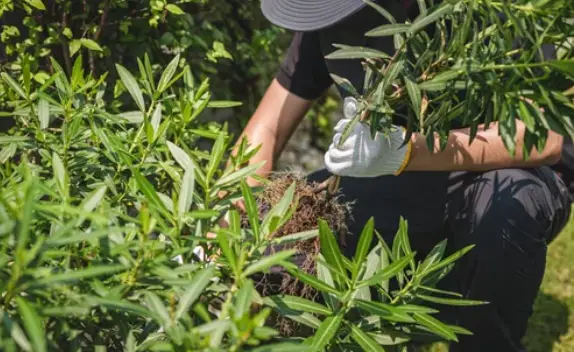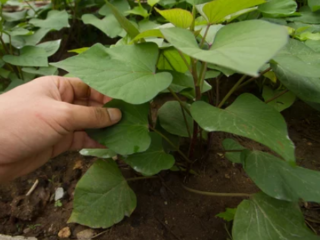Weeds can be a persistent problem for gardeners and landscapers.
They compete with plants for water, nutrients, and sunlight and can quickly take over a garden.
While there are many ways to control weeds, it can be challenging to eradicate them permanently.
In this blog post, we’ll discuss several methods to stop weeds from growing permanently.
Understanding Weeds
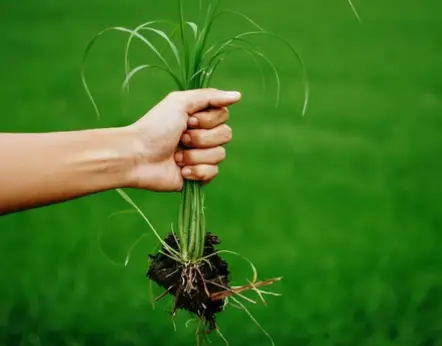
Before we dive into the methods to stop weeds from growing, it’s essential to understand what they are and how they grow. Weeds are plants that grow where they are not wanted.
They can thrive in various conditions, such as in gardens, lawns, and agricultural fields.
They reproduce through seeds, which can germinate and grow in any area with suitable needs.
Weed seeds can remain dormant in the soil for years, waiting for the right conditions to germinate. When conditions are favorable, the seeds will sprout and grow into plants, which can quickly spread and take over a garden.
Some weeds, such as perennial weeds, have deep roots that can regrow even after being removed.
Preventing Weeds from Growing
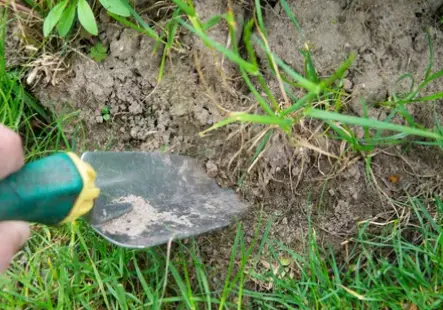
Preventing weeds from growing is the best way to avoid the need for constant weed control. Here are a few ways to prevent weeds from growing in the first place:
Mulching:
Mulching is an effective way to prevent weed growth in garden beds. A layer of organic material, such as leaves, straw, or wood chips, can prevent weed seeds from germinating by blocking out sunlight.
Landscape Fabric:
Landscape fabric is another way to prevent weeds from growing. It is a permeable material that allows water and air to pass through but blocks sunlight. Place the fabric on top of the soil and cover it with a layer of mulch.
Proper Plant Spacing:
Planting your plants at the recommended spacing can help prevent weed growth. When plants are spaced correctly, they can shade the soil and prevent sunlight from reaching weed seeds.
Weed Barrier:
A weed barrier is a physical barrier that can prevent weed growth. It can be made of various materials, such as plastic or landscape fabric, and placed on top of the soil before planting.
Killing Weeds
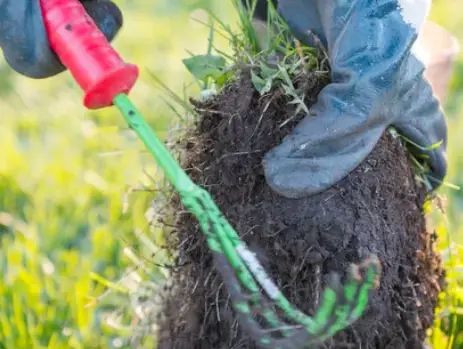
If weeds have already grown in your garden or lawn, you’ll need to kill them to prevent them from coming back. Here are a few ways to kill weeds:
Hand Pulling:
Hand pulling is an effective way to remove weeds from small areas. You can use a hand trowel or a weeder to loosen the soil around the weed and gently pull it out, making sure to remove the entire root system.
Herbicides:
Herbicides are chemical sprays that can kill weeds. They work by disrupting the weed’s growth and development, eventually killing the plant. There are two types of herbicides: selective and non-selective. Selective herbicides kill only specific types of weeds, while non-selective herbicides kill all plants.
Solarization:
Solarization is a process that uses the sun’s heat to kill weeds. To solarize an area, cover it with clear plastic and leave it in place for several weeks during the hottest part of the year. The heat will kill the weed seeds and any existing plants.
Preventing Weeds From Growing Back
Preventing weeds from growing back is critical to achieving long-term weed control. Here are a few ways to prevent weeds from growing back:
Maintain a Healthy Lawn or Garden:
A healthy lawn or garden can prevent weeds from growing by outcompeting them for resources. Make sure to fertilize your plants and keep them well-watered.
Use Pre-Emergent Herbicides:
Pre-emergent herbicides can prevent weed seeds from germinating. They work by creating a barrier in the soil that prevents the seeds from sprouting. Apply pre-emergent herbicides before weed seeds germinate, usually in the early spring or fall.
Regular Weeding:
Regular weeding is essential to prevent weeds from growing back. Pull out any new weeds as soon as they appear to prevent them from going to seed and spreading.
Avoid Disturbing the Soil:
Disturbing the soil can bring weed seeds to the surface and create an ideal environment for them to germinate. Avoid tilling or cultivating the soil excessively, as it can also damage the roots of existing plants.
Use Ground Cover Plants:
Ground cover plants, such as creeping thyme or ajuga, can prevent weeds from growing by forming a dense mat of foliage that shades the soil and prevents weed seeds from germinating.
Tips to Permanently Stop Weeds from Growing:
Use Natural Weed Killers:
If you prefer to avoid chemical herbicides, natural weed killers such as vinegar or salt water can be effective in killing weeds. However, be careful when using these as they can also harm desirable plants.
Plant Cover Crops:
Cover crops such as clover, buckwheat, or rye can be planted in between seasons or in fallow areas to prevent weed growth. These plants compete with weeds for nutrients and sunlight and can also improve soil health.
Remove Weeds Before They Go to Seed:
Weeds produce a vast number of seeds that can remain dormant in the soil for years. Removing weeds before they produce seeds is essential to preventing their growth.
Use Edging:
Using edging around garden beds or along walkways can prevent weeds from creeping in from adjacent areas.
Consider a Professional Service:
If weeds continue to be a persistent problem, consider hiring a professional service that can offer long-term solutions for weed control, such as regular maintenance or weed suppression programs.
Conclusion
Although weeds might be a recurring issue, you can permanently limit their growth by using the appropriate techniques.
You can save money by avoiding the need for ongoing weed care by preventing weed development with techniques like mulching, appropriate plant spacing, and weed barriers.
If weeds have already sprung in your garden, you can stop them from growing again by removing them by hand, using herbicides, or solarizing the area.
The maintenance of a healthy lawn or garden, the use of pre-emergent herbicides, routine weeding, avoiding soil disturbance, and the use of ground cover plants are all necessary to keep weeds from coming back.
You may take advantage of a lovely, weed-free garden or lawn by using these techniques.

